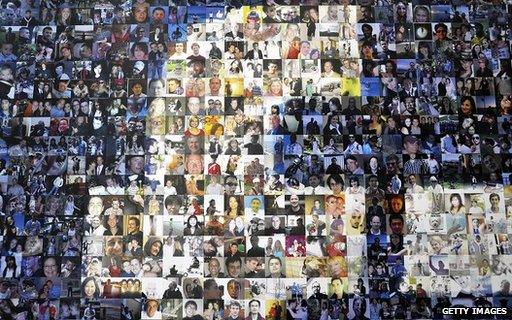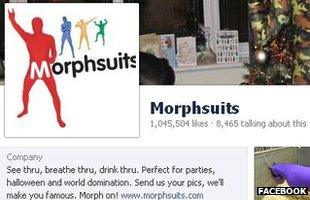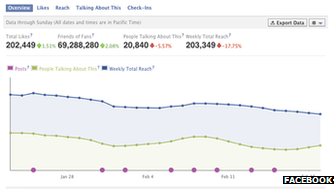Facebook Q&A: The network justifies the cost of its "like" adverts
- Published

Facebook says it uses computer programs and reports by its members to detect fake profiles on the social network
The BBC has learned that some marketers have questioned whether it is worth buying adverts on Facebook.
The concerns were prompted by evidence from one marketer that some accounts which had clicked on thousands of businesses "like" buttons had been registered to subscribers using false identities - something that Facebook's terms and conditions forbid.
An experiment carried out by the BBC found further evidence of the problem, and an executive at one of the UK's biggest companies added that it had had "very little return" on money spent on ads on the network.
The BBC put the issues raised by its investigation to a Facebook spokesman:
<paragraph>Is your audience really as big or as valuable as you claim?</paragraph>
<paragraph>We've seen evidence that there are plenty of fake profiles being generated in parts of the world - or at least profiles that break your terms and conditions by not featuring real names. What are you doing to address this issue?</paragraph>

Facebook says Morphsuits - a firm with more than one million likes - has benefited from adverts
<paragraph>It seems that many of the "likes" on brands' pages - big companies and small - come from countries like Egypt and the Philippines, from people who "like" just about anything. That's good for Facebook - every click on an ad earns you money - but are advertisers getting a good deal?</paragraph>

Facebook's Page Insights service is designed to help marketers keep track of who "likes" their clients
<paragraph>If a situation develops where US and European users ignore ads while users in developing nations click randomly on them, isn't that damaging for Facebook's business model?</paragraph>
- Published3 July 2012
- Published18 June 2012
- Published30 November 2011